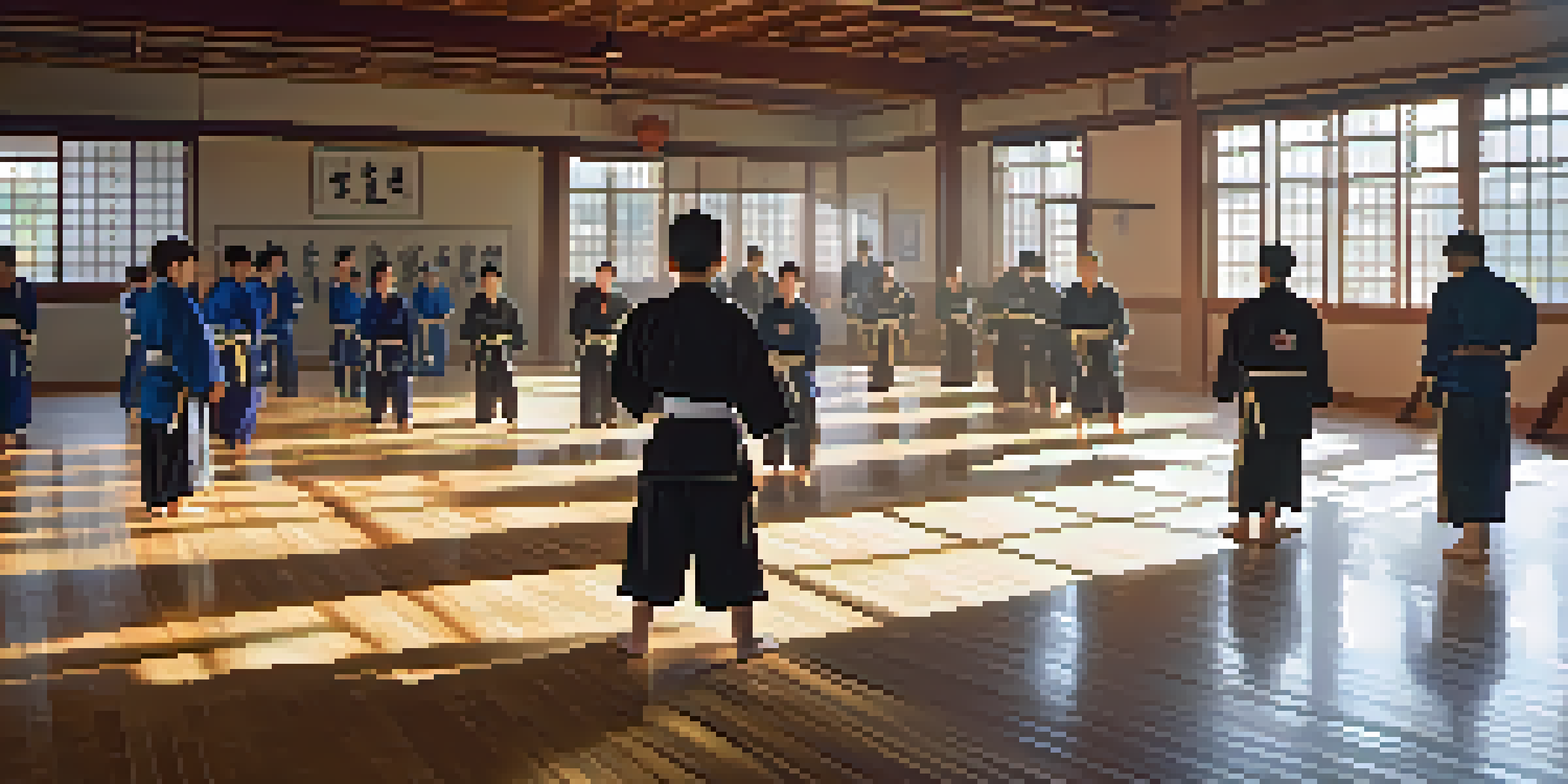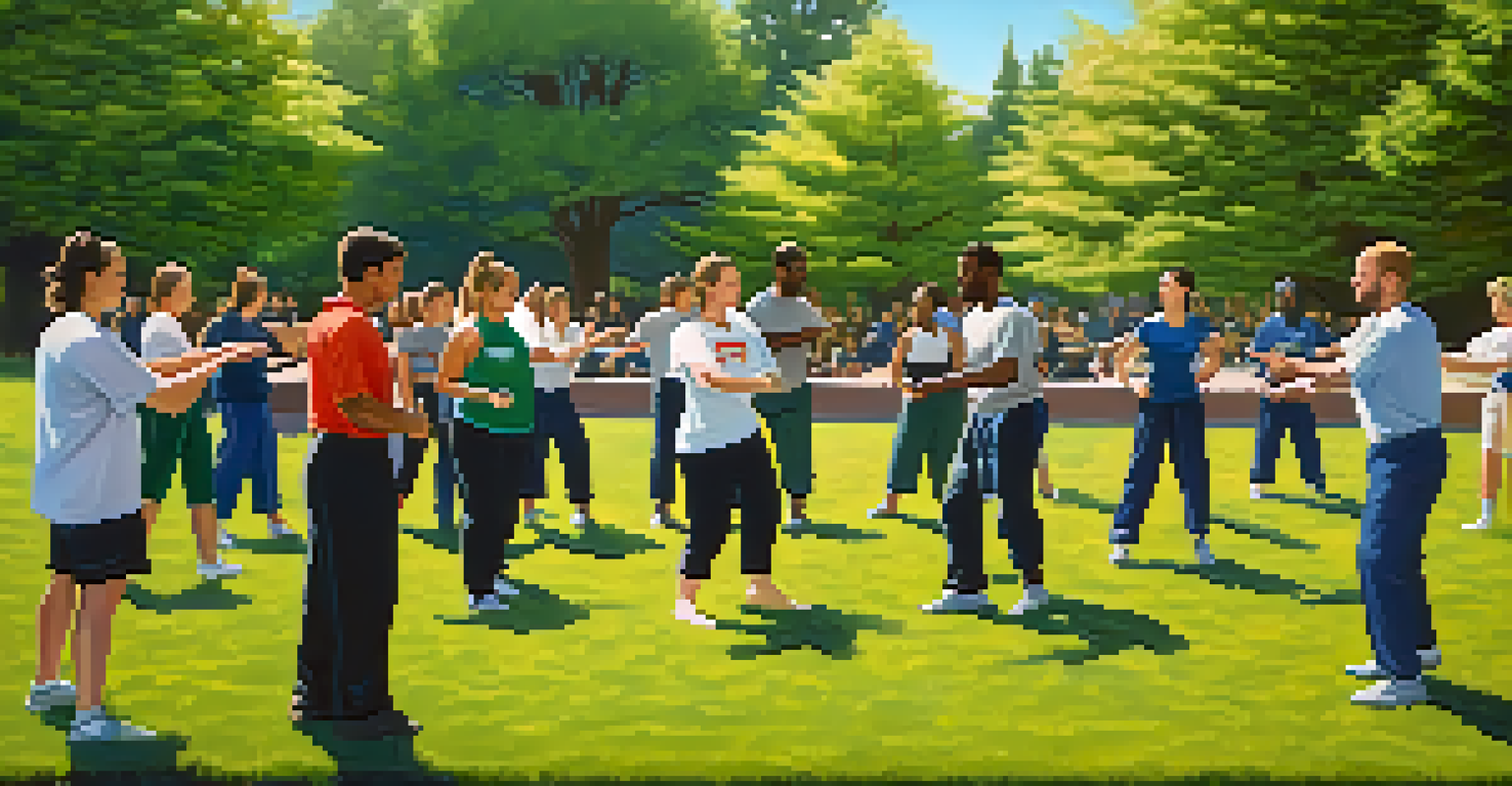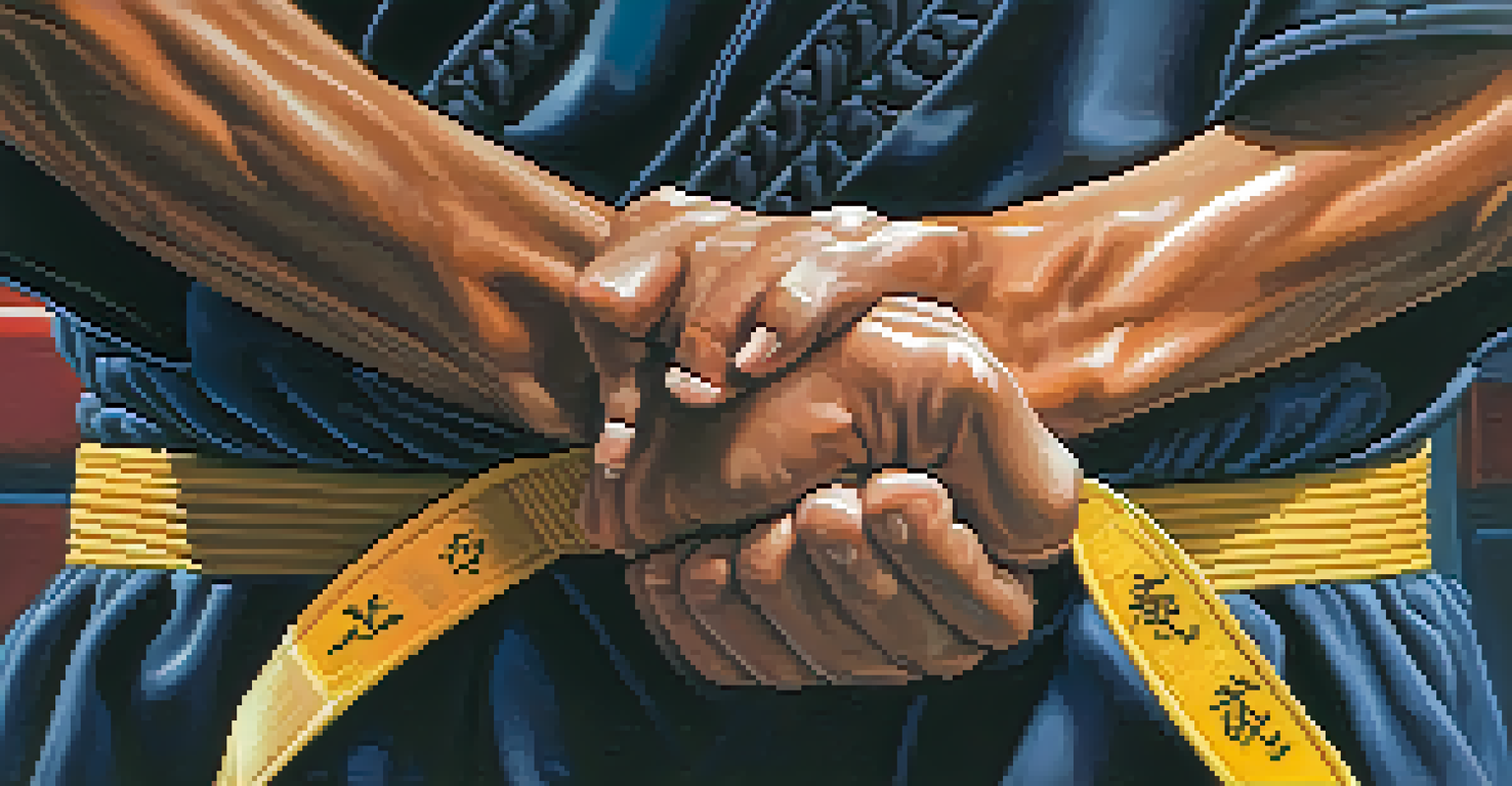The Role of Martial Arts in Enhancing Self-Defense Skills

Understanding Self-Defense and Its Importance
Self-defense is a crucial skill that empowers individuals to protect themselves in potentially dangerous situations. It's not just about physical strength; it's about confidence, awareness, and the ability to respond appropriately. This skill can be especially vital in today's world, where personal safety is often a concern.
The best defense is a good offense.
Learning self-defense can significantly reduce fear and anxiety, allowing individuals to navigate their environments with more assurance. By understanding the principles of self-defense, one can de-escalate situations before they turn violent. This proactive approach is just as important as the physical techniques employed.
Moreover, self-defense is not solely for those in high-risk environments; it benefits everyone. Whether you're walking alone at night or simply want to feel more secure in your daily life, self-defense training can enhance your overall sense of safety and well-being.
How Martial Arts Provides Practical Self-Defense Skills
Martial arts encompass a variety of techniques and philosophies, each offering unique approaches to self-defense. From Brazilian Jiu-Jitsu's grappling techniques to Krav Maga's focus on real-world scenarios, each discipline provides practical skills to handle various threats. This diversity allows practitioners to choose a style that resonates with them personally.

Training in martial arts not only teaches you how to physically defend yourself, but it also instills a mindset geared towards awareness and prevention. You learn to assess situations and recognize potential threats before they escalate. This mental preparation is just as critical as physical training.
Self-Defense Empowers Individuals
Learning self-defense enhances personal safety and builds confidence, enabling individuals to navigate potentially dangerous situations with assurance.
Additionally, martial arts training often includes sparring and controlled combat scenarios, which help students practice their skills in a safe environment. This hands-on experience builds muscle memory and confidence, ensuring that techniques are readily available when faced with a real-life situation.
Building Confidence Through Martial Arts Training
One of the most significant benefits of martial arts training is the boost in self-confidence it provides. As individuals learn and master new techniques, they begin to trust in their abilities. This newfound confidence can translate into various aspects of life, from social interactions to personal challenges.
Self-defense is not only a right, but a duty.
Moreover, the process of setting and achieving goals within martial arts fosters a sense of accomplishment. Whether it's earning a new belt or mastering a challenging move, each milestone reinforces the belief that one can overcome obstacles. This is a powerful lesson that extends beyond the dojo.
Confidence gained through martial arts also helps reduce the likelihood of being targeted by aggressors. Predators often look for easy targets, and a confident demeanor can signal to them that you are not someone to mess with. Thus, martial arts training not only prepares you physically but also empowers you mentally.
The Importance of Awareness and Prevention
Martial arts training emphasizes the importance of awareness and situational understanding. Practitioners learn to observe their surroundings, identifying potential threats before they become imminent dangers. This heightened awareness is a key component of effective self-defense.
In addition to awareness, martial arts also teaches prevention strategies. For instance, many styles incorporate techniques for avoiding confrontation whenever possible. This focus on de-escalation and avoidance can help individuals navigate potentially dangerous situations more safely.
Martial Arts Builds Confidence
Training in martial arts not only provides practical self-defense skills but also fosters self-confidence that extends to various aspects of life.
By prioritizing awareness and prevention, martial arts practitioners develop a proactive mindset. This approach not only prepares them for self-defense but also encourages a lifestyle that values safety and caution in everyday activities.
Physical Fitness and Its Role in Self-Defense
Martial arts training is an excellent way to improve physical fitness, which plays a crucial role in effective self-defense. Increased strength, endurance, and flexibility enhance your ability to respond to threats quickly and efficiently. This physical conditioning complements the techniques learned in training.
Furthermore, the cardiovascular benefits of martial arts help improve overall stamina, allowing you to remain calm and focused during high-stress situations. A fit body can mean the difference between escaping an attacker and succumbing to fatigue.
Engaging in regular martial arts practice also instills a sense of discipline and commitment to health. This dedication to fitness can lead to a healthier lifestyle, which not only prepares you for self-defense but also enhances your quality of life.
Community and Support in Martial Arts Training
One of the often-overlooked aspects of martial arts is the sense of community it fosters among practitioners. Training environments typically encourage camaraderie and mutual support, which can enhance motivation and accountability. This supportive atmosphere can be especially beneficial for those new to self-defense.
Being part of a martial arts community also provides opportunities for learning from others' experiences. Sharing stories and techniques enhances the overall training experience, allowing practitioners to grow together. This collective learning can deepen understanding and mastery of self-defense skills.
Awareness is Key to Prevention
Heightened awareness and prevention strategies learned through martial arts are crucial for identifying potential threats and avoiding confrontations.
Additionally, the friendships formed in martial arts can create a network of support outside of training. This sense of belonging can significantly impact mental health and well-being, making individuals feel more connected and supported in their self-defense journey.
Choosing the Right Martial Arts Style for Self-Defense
With so many martial arts styles available, choosing the right one for self-defense can feel overwhelming. It's essential to consider your personal goals, physical abilities, and interests when selecting a style. Each martial art offers unique techniques and philosophies that cater to different needs.
For example, if you're looking for practical self-defense skills, styles like Krav Maga or Brazilian Jiu-Jitsu may be ideal due to their focus on real-life scenarios and techniques. On the other hand, if you're interested in developing discipline and mental fortitude, traditional styles like Karate or Taekwondo could be a great fit.

Ultimately, the best approach is to try a few different classes to see which style resonates with you. Many martial arts studios offer introductory classes, allowing you to experience various disciplines before committing. Finding the right fit will not only enhance your learning experience but also keep you engaged and motivated.